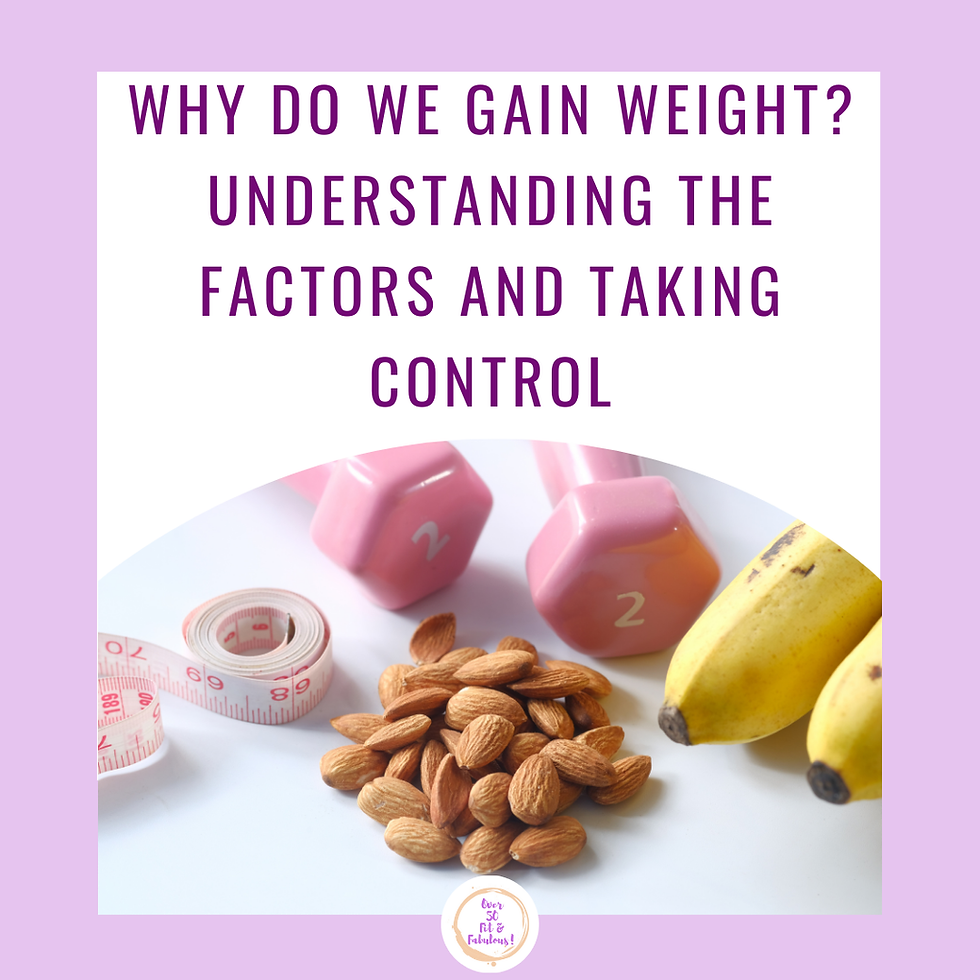Confident Eating: Do You Trust Your Food Choices?
- Sandra xx

- Feb 26, 2025
- 3 min read
Do you ever feel overwhelmed by all the advice on what to eat for better health and weight loss?
One minute, carbs are the enemy, the next, they’re essential. Some say dairy is bad, others swear by it. With so much conflicting information, it’s no wonder many women over 50 struggle to feel confident in their food choices.
But here’s the thing—eating well doesn’t have to be confusing. By understanding where we get our nutrition information and learning to separate facts from fads, we can make better choices for our long-term health and wellbeing.
Are You Unsure About Your Food Choices?
Confidence in food choices often comes from having clear, consistent information. Unfortunately, that’s not always easy to find. We face:
Confusing and conflicting advice – Low-carb? Mediterranean? Plant-based? There’s no one-size-fits-all answer.
Misinformation in the media – Headlines often focus on extreme diets or single “superfoods” instead of balanced nutrition.
A changing body – Hormonal shifts, slower metabolism, and muscle loss mean that what worked in our 30s and 40s might not work now.
Fear of making the ‘wrong’ choice – With so much pressure to eat “perfectly,” many women feel stuck, unsure of what’s best for them.
So, where do we turn for nutrition advice? And how do we know what’s trustworthy?
Where Do You Get Nutrition Information?
Healthcare Professionals
GPs, dietitians, and nutritionists can offer science-backed advice, but many people find they don’t get enough personalised support in quick appointments.
Books & Magazines
Health-focused publications can be useful, but they often jump on the latest trends, making it hard to separate lasting advice from passing fads.
Social Media & the Internet
A quick search online brings up endless diet plans and miracle weight loss solutions—but many lack scientific backing. Following trusted sources like the NHS, the British Nutrition Foundation, or registered professionals is key.
Friends & Family
Personal experiences can be valuable, but just because something worked for someone else doesn’t mean it’s right for you.
Trial & Error
Experimenting with different eating styles to find what suits their body and lifestyle best. While this can be useful, it’s important to listen to what your body truly needs rather than jumping from one extreme diet to another.
How to Build Confidence in Your Food Choices
If you’re tired of second-guessing every meal, here’s how to simplify your approach and eat with confidence:
1. Stick to Evidence-Based Advice
There’s no shortage of diet trends promising fast results, but real, lasting health comes from understanding the basics of good nutrition. Reliable sources like the NHS Eatwell Guide, the British Nutrition Foundation, and registered dietitians provide well-researched advice that works for women over 50. Instead of chasing the latest fad, trust in the science of balanced eating.
2. Focus on Whole, Natural Foods
Instead of overcomplicating your diet, stick to foods that nourish your body:
✔ Lean proteins (chicken, fish, tofu, beans) for muscle strength
✔ Healthy fats (avocados, nuts, olive oil) for brain and heart health
✔ Fibre-rich foods (vegetables, whole grains, legumes) for digestion and blood sugar balance
✔ Plenty of water and herbal teas to stay hydrated and energised
Simple, real food is your best bet for long-term health and weight management.
3. Ignore Extreme Diets & Food Guilt
Low-carb, high-protein, keto, fasting—there are endless diets out there, but not all are sustainable. The best way to eat is the one you can maintain while still enjoying life.
If a diet makes you feel deprived, stressed, or guilty, it’s probably not right for you.
Instead of labelling foods as "good" or "bad," aim for balance—an occasional treat won’t undo all your progress.
Trust your body’s signals—eat when you’re hungry, stop when you’re satisfied, and choose foods that make you feel your best.
4. Learn to Read Food Labels
Marketing can be misleading—products labelled as "low-fat" or "healthy" can still be packed with sugar and additives. Focus on:
The ingredient list—shorter is usually better
Protein and fibre content—to keep you full and energised
Avoiding hidden sugars—look out for glucose, fructose, syrup, and artificial sweeteners
5. Listen to Your Body
The best “diet” is the one that works for you. What foods make you feel energised, strong, and satisfied? Keep a simple food journal for a week and notice patterns. Do certain foods make you feel bloated, sluggish, or hungry again too soon? Use this insight to tweak your choices, rather than following rigid rules.
Final Thoughts: Take Charge of Your Nutrition
You don’t need to be a nutrition expert to make healthy choices—you just need the right tools and a bit of confidence. By focusing on balanced eating, trusting credible sources, and tuning into your own body, you can take control of your health without the confusion.
If you’re looking for more support, guidance, and motivation, join my Facebook group where we focus on real, achievable ways to stay fit, strong, and fabulous over 50!



Comments